Five nutrition questions answered by an Ineos Grenadiers expert
We put some hot fuelling topics to Dr Marc Fell, performance nutritionist for Ineos Grenadiers
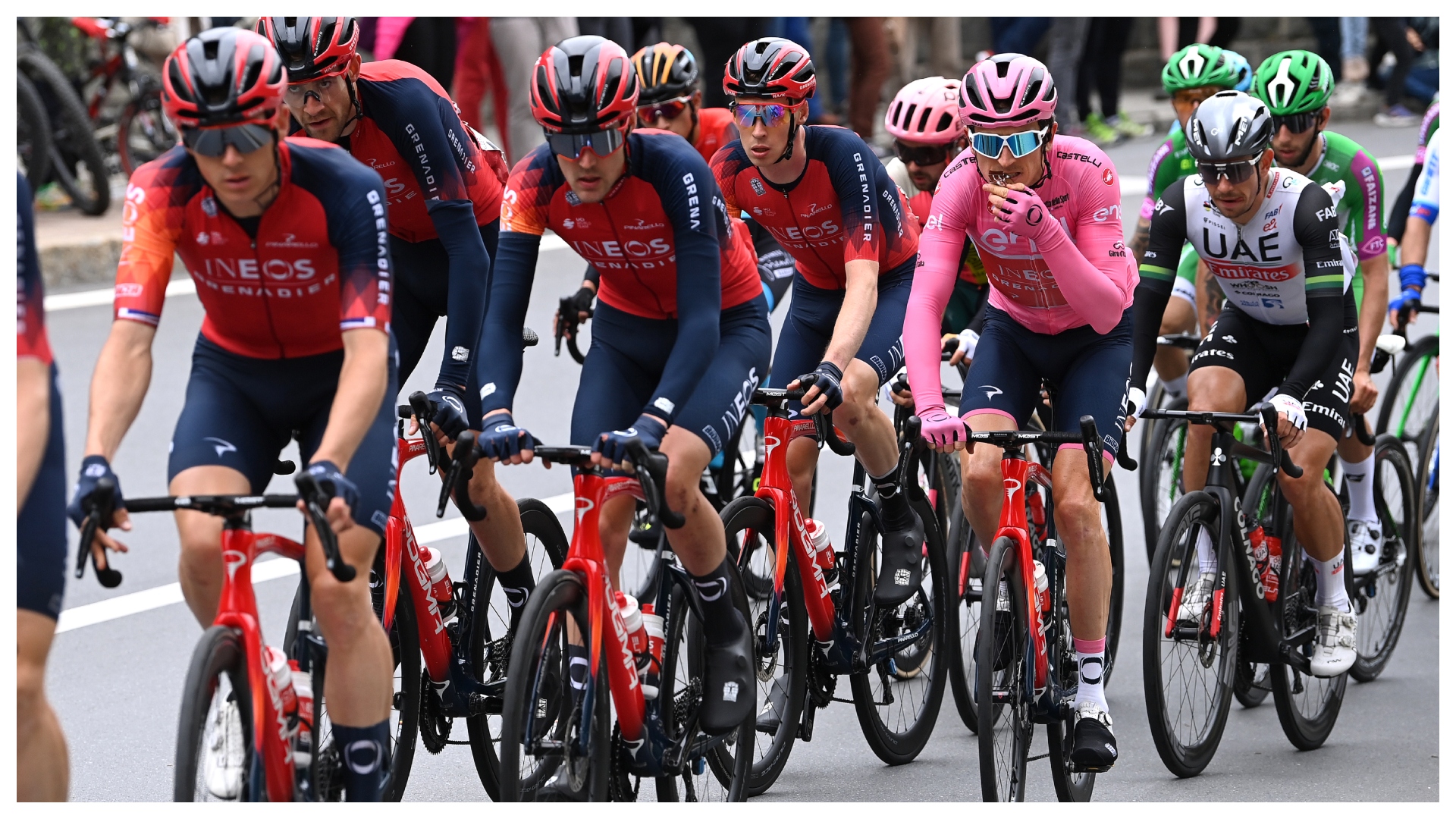
If you want to get the most from the miles you put in on your bike, then you need to ensure that your fuelling is spot on. The riders at INEOS Grenadiers are lucky enough to have experts like Dr Marc Fell, their performance nutritionist to call upon for advice. So, who better to answer some of the questions that we regularly get asked about fuelling for cycling?
What are the four 'Rs' of sports nutrition?
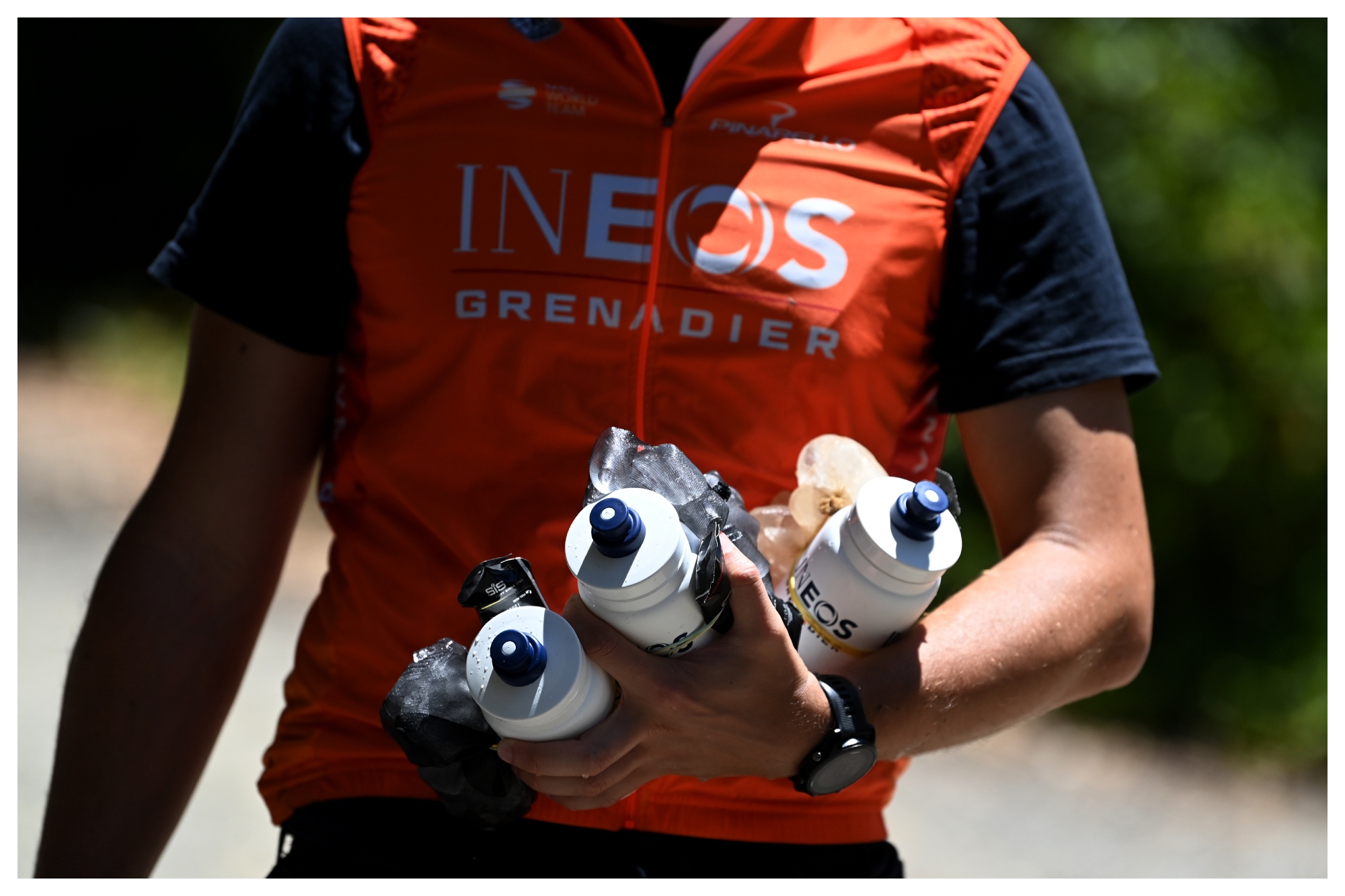
These are are the fundamentals of any recovery strategy.
Refuel
Consume carbohydrates immediately after your training session or race to replenish the energy - in the form of muscle and liver glycogen - that you will have just used .
How much carbohydrate you require depends on how hard the session was and how close your next session is. For instance, if you have just completed a high intensity session and have another session planned within the next 24 hours then it is important to consume more carbohydrates between these sessions to aid muscle and liver glycogen replenishment (aiming for approximately 1 to 1.2 grams of carbohydrates per kilogram of your bodyweight per hour for the first 3 hours following the session).
On the other hand if you have just completed a light intensity session and will not be undertaking another training session for a couple of days then you do not have to be as aggressive with your carbohydrate intake following that session.
Repair
When you exercise you will put stress on your muscles which causes damage to the muscle. Promoting the rebuilding and repair of this damage requires sufficient protein intake. Therefore, you should aim to consume 20-30g of protein immediately after your training session.
Rehydrate
When you exercise your body can lose a lot of fluids through sweating. This means you need to drink fluids before, during and after sessions to replace the fluids you have lost through sweating.
A simple method to assess how much fluid you need to drink after a session to rehydrate is to weigh yourself before and after the session and multiple the difference by 1.5-litres, for example if you have lost 1kg of fluids during exercise then you should aim to drink 1.5-litres of fluids within the hours after exercise.
Adding electrolytes to your fluids after exercise can also promote rehydration as you will have lost key electrolytes ( such as sodium) in your sweat which are important for maintaining hydration levels.
Rest
We all know the importance of rest and sleep to allow your body to recover. It's in the hours and days after training sessions that your body adapts to training stress, so maximising your sleep each night will help promote this process and also allow your muscles to recover.
Try using SiS Rapid REGO Recovery after training sessions as it provides an all in one recovery drink that is high in protein and carbohydrates as well as containing key electrolytes to kickstart your recovery.
Are there any dietary supplements that will benefit my cycling and general health?
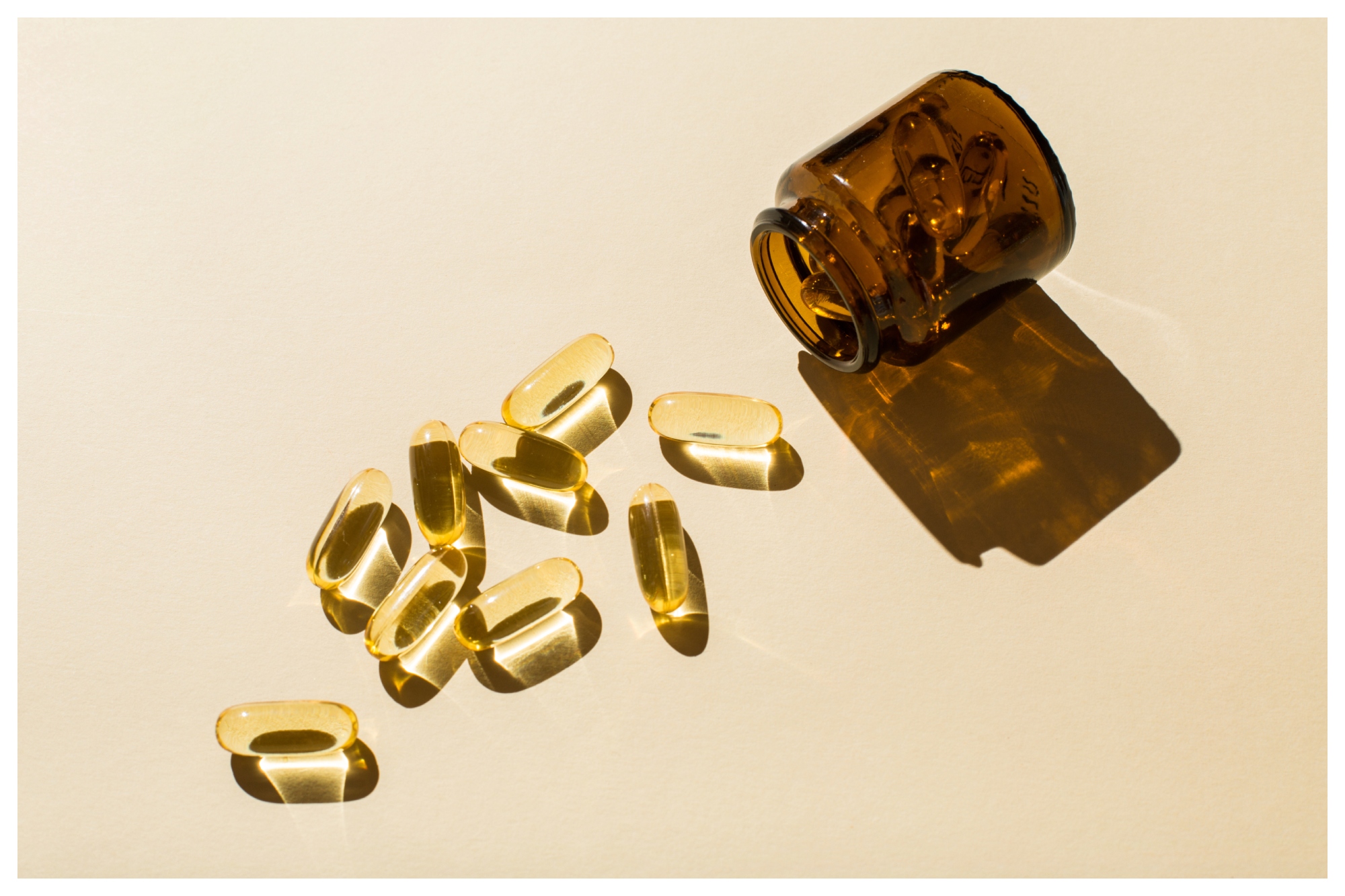
You should always aim to follow a food-first approach when it comes to nutrition and diet, as consuming a well balanced diet will ensure you get all of the important macro- and micronutrients you need to keep you healthy and performing at your best without the need for supplements. However, there are certain supplements which may help.
For example, taking Vitamin D3 in the winter months can be beneficial given that we can only get high amounts of Vitamin D from the sun which is lacking in the winter. Vitamin D has a whole host of benefits for general health and sport performance. And a good multivitamin and mineral supplement can help cover your nutritional bases.
Omega-3 essential fatty acid supplements can also provide a number of health benefits including an anti-inflammatory effect. However, if you eat plenty of oily fish, you might not need to supplement. However, the ratio of Omega-3 to Omega-6 fatty acids is important. Omega-6, while also an essential fat, is more prevalent in Western diets and we should be aiming to consume more 3 than 6, so most people would benefit from 500-1000 mg per day of the former.
A protein supplement may also be useful in some instances as a convenient way to add more to your diet. Supplements are not always necessary if you are already consuming high amounts of protein within your diet but can provide a simple and easy way to boost your recovery from hard sessions by kick starting the recovery process with a shake containing protein powder like SiS Rapid REGO Recovery.
Further to this, if you are racing competitively you may also wish to explore supplements such as caffeine, creatine, beta alanine and sodium bicarbonate which have all been found to enhance cycling performance.
How do I prevent cramp both during and after rides?
Cramps are caused by a number of different factors but, from a nutritional perspective, areas related to cramping can be dehydration, imbalances of electrolytes and underfuelling.
Therefore, it is important during events to make sure you have both fuelled and hydrated enough before and during the event. Adding electrolytes like SiS GO Hydro tablets to your fluids or using SiS GO Electrolyte may potentially help prevent cramping especially if you are a very ‘salty sweater’ and/or have a high sweat rate which will mean you could be losing a lot of key electrolytes in your sweat.
How do Tour de France riders use energy products during a long stage?
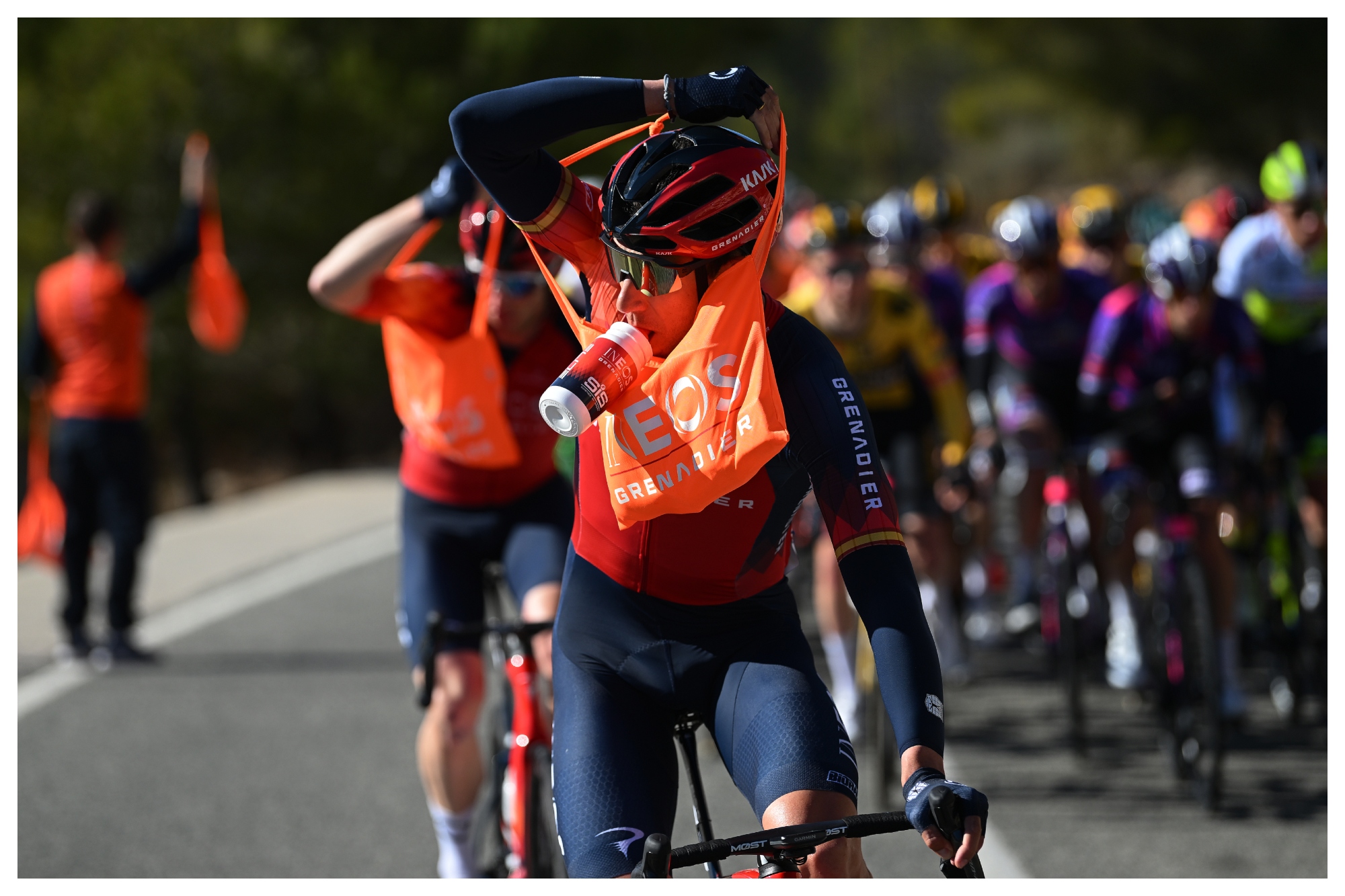
Tour de France riders will mainly use energy gels such as the SiS GO Isotonic Gel which provides 22g of carbohydrates but they will also use higher carbohydrate gels like the SiS Beta Fuel gel which provides 40g of dual source carbohydrates in an optimal carbohydrate ratio
They'll also use energy gels with added caffeine like SiS' Beta Fuel Nootropics Gel or SiS GO Gel plus caffeine. They will specifically aim to use the higher carbohydrate gels - Beat Fuel - when they are trying to fuel maximally on the bike, for example on the really hard mountain stages of the Tour, as these gels are packed full of carbohydrates and provide a convenient way to get plenty of energy into the body.
They will then use the gels with caffeine when towards the end of the stages when they becoming more fatigued or before time trials to give them an extra physical and mental boost.
Typically during a long mountain stage, Ineos Grandiers riders could be consuming anywhere between 8-12 gels which equates to approximately 2-3 gels per hour.
What’s the difference between energy gels and energy drinks and when is the best time to consume either?
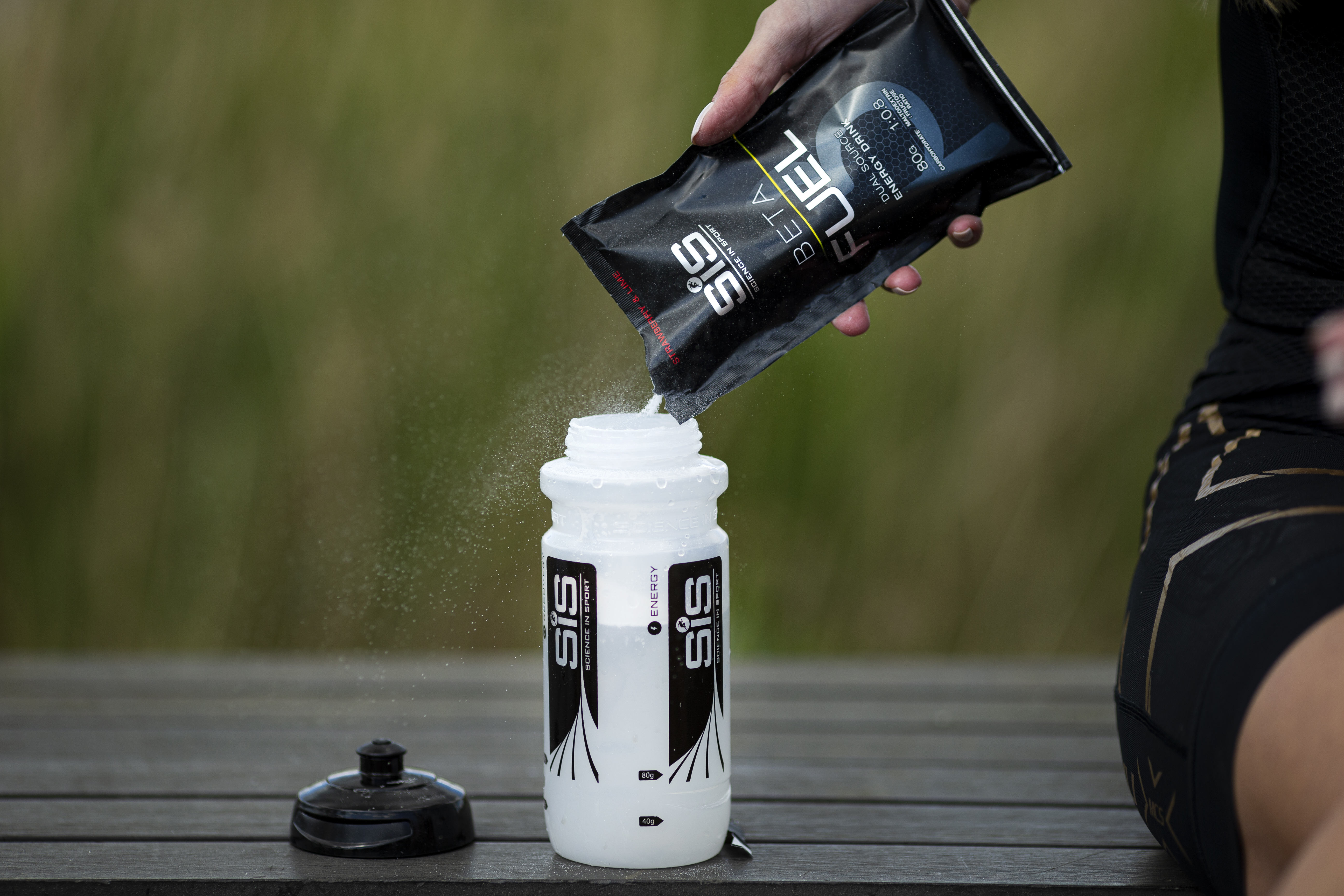
There is actually a very limited difference between energy gels and energy drinks when it comes to the body’s ability to digest, absorb and use these products as energy.
The difference is about the practicality - energy gels are simple and easy to consume in small volumes (usually around 60ml) while in energy drinks are consumed in higher volumes - usually around 500ml. An energy drink, though, does have additional benefits - for example promoting hydration through increased fluid intake.
The best time to consume energy gels and drinks is during exercise sessions lasting longer than 60 minutes. So, if you are exercising for up to three hours you should aim to consume a SiS GO Isotonic Gel approximately every 25-30 minutes while sipping an energy drink like SiS GO Energy Powder throughout to reach a carbohydrate target of approximately 60 grams per hour.
If you are exercising for three hours or longer you should aim to consume a SiS GO isotonic Gel or SiS Beta Fuel gel every 20-25 minutes while sipping on an energy drink like SiS GO Energy Powder throughout to reach a higher carbohydrate target of approximately 90-120 grams per hour.
The best sport nutrition products are the ones that are aligned to your exercising goals and the type of exercise you are undertaking whether it be endurance based exercise or strength based exercise for example.
Science in Sport products have been based on certain fundamentals to ensure they provide only the best sport nutrition products to help you achieve your goals. They're made combining world-class knowledge and scientific formulations to provide optimal solutions for fuelling, hydration and recovery.
All the products have been scientifically designed with the latest research to ensure the product is the best it can be. They've also been rigorously tested to ensure they contain exactly what they say they do and every batch of every product is tested by Informed Sport meaning it is trusted by professional athletes across the world.
Get The Leadout Newsletter
The latest race content, interviews, features, reviews and expert buying guides, direct to your inbox!
-
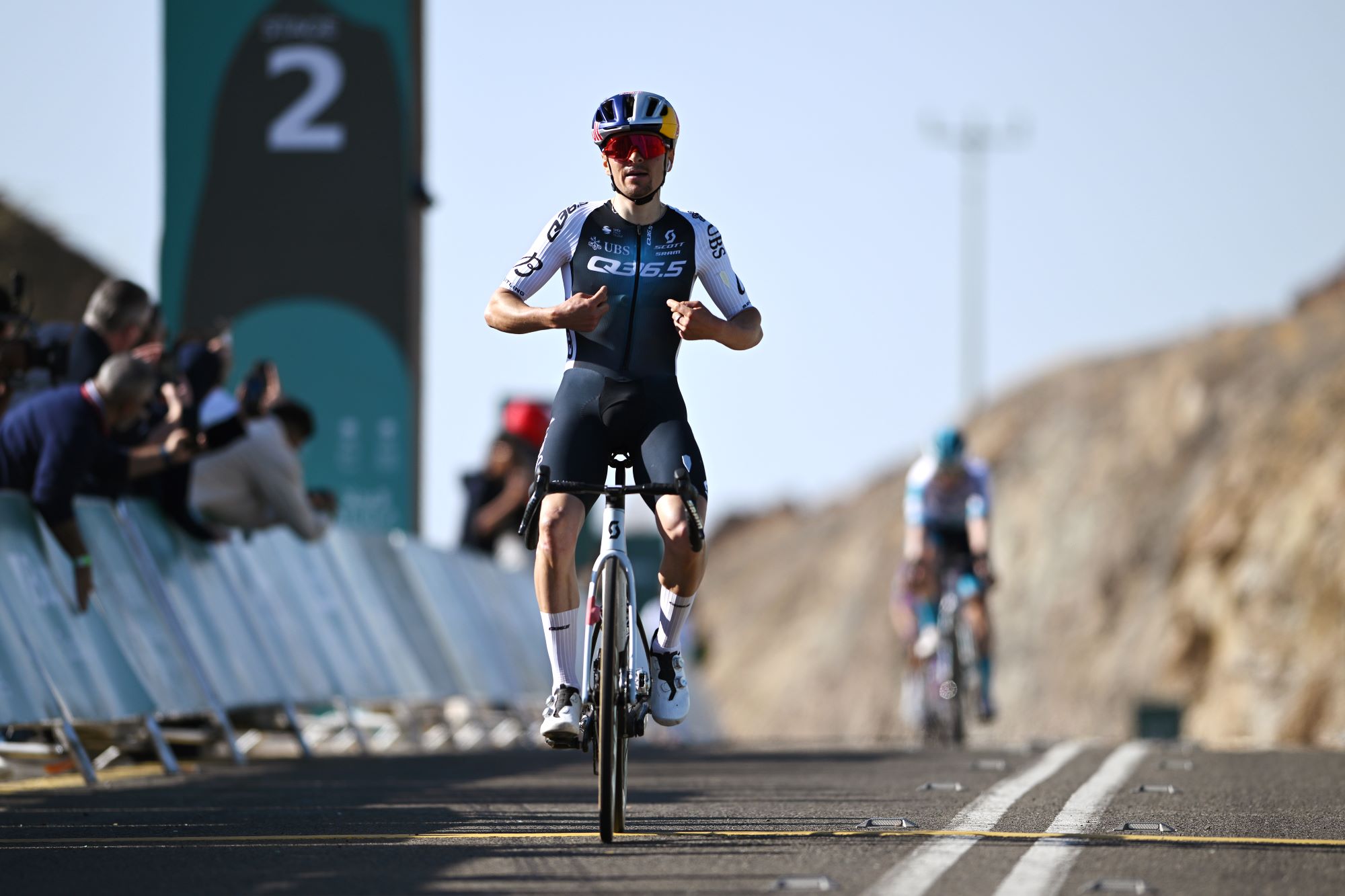 What does Q36.5 mean? We asked the people behind the Italian kit brand that sponsors Tom Pidcock's team
What does Q36.5 mean? We asked the people behind the Italian kit brand that sponsors Tom Pidcock's teamQ36.5's Luigi Bergamo and Lodovico Pignatti Morano take on Cycling Weekly's Q&A
By Tom Thewlis
-
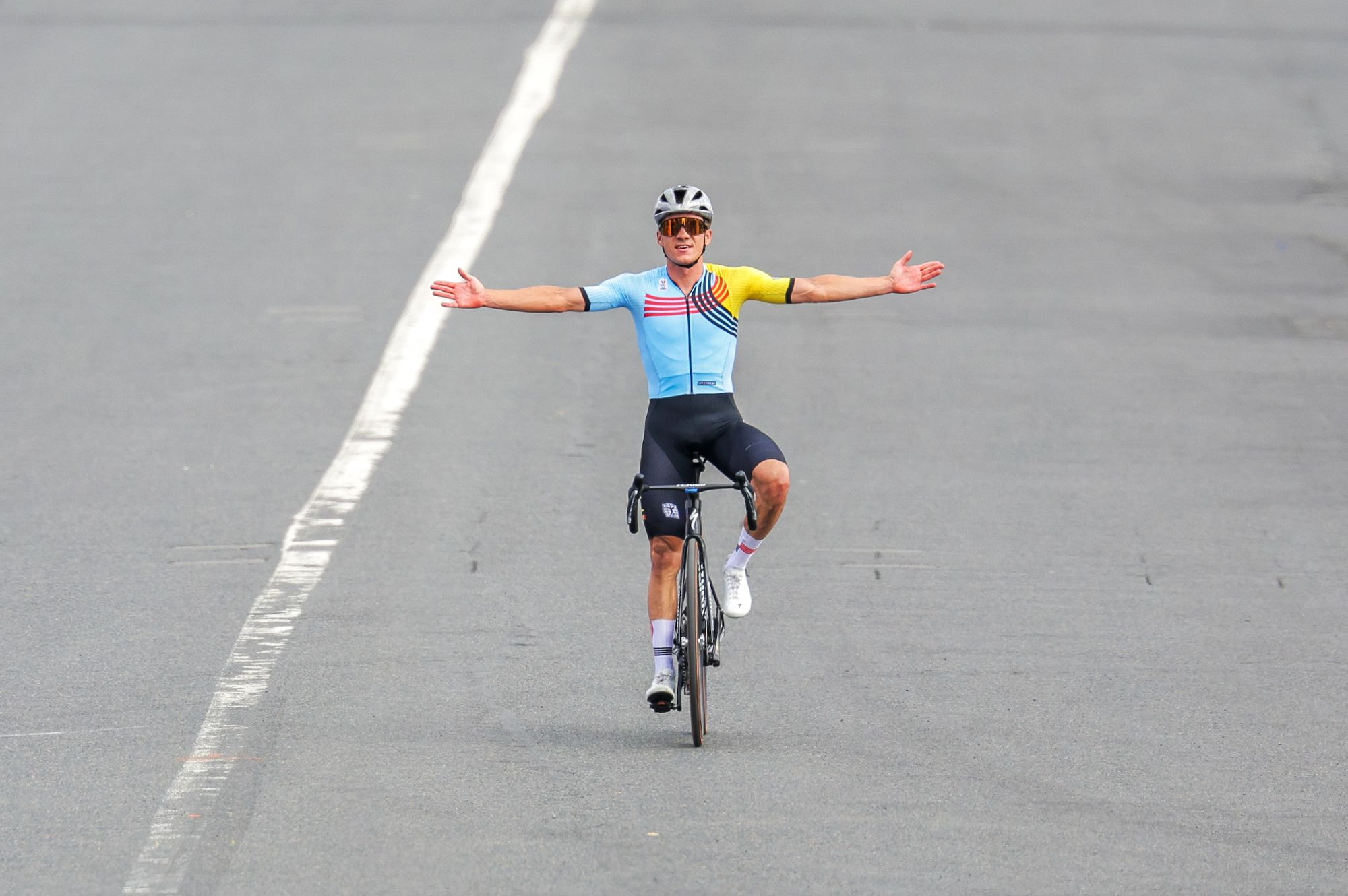 'If I were a tennis player then my career would be over': Remco Evenepoel contemplated early retirement after serious training accident
'If I were a tennis player then my career would be over': Remco Evenepoel contemplated early retirement after serious training accidentDouble Olympic champion was left with nerve damage and says his shoulder is not yet fully healed ahead of his return to racing at Brabantse Pijl
By Tom Thewlis
-
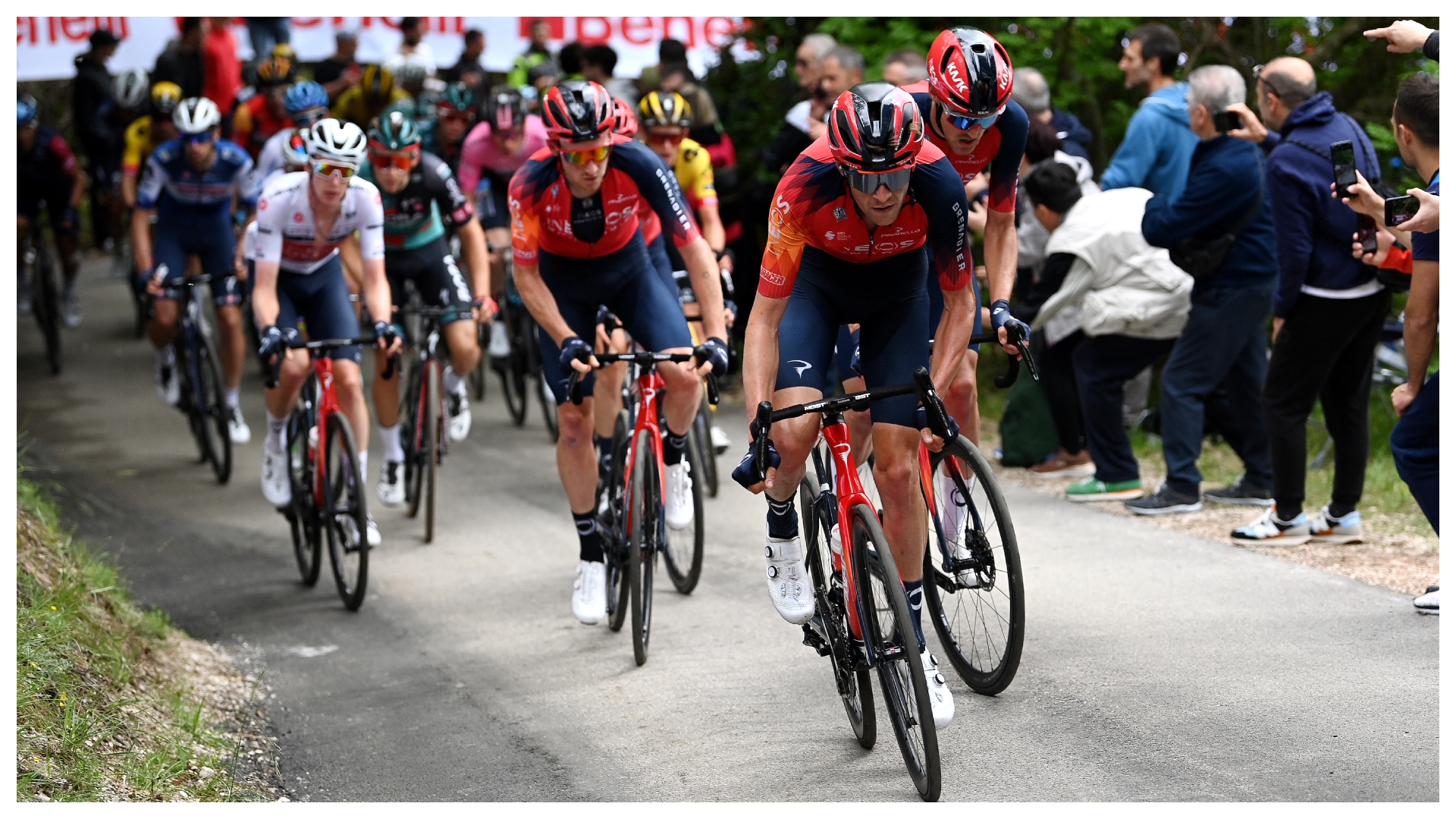 Eating for optimal recovery
Eating for optimal recoveryHow INEOS Grenadiers use Science in Sport to fuel their recovery
By Sponsored
-
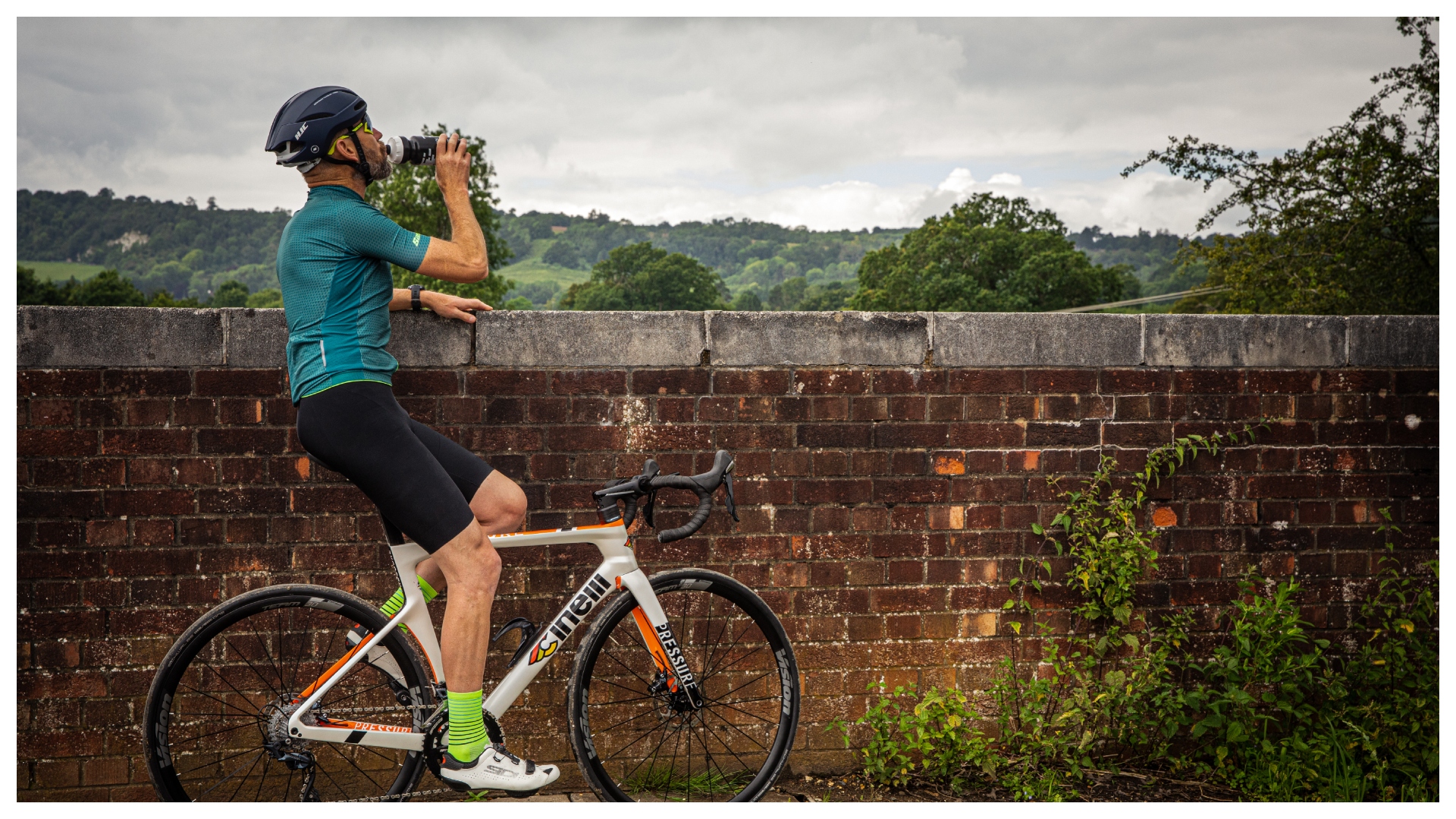 What to drink when cycling - the liquids you need on the bike
What to drink when cycling - the liquids you need on the bikeNot all liquid is created equal - we explain the different types of fluid that'll help you ride further
By Luke Friend
-
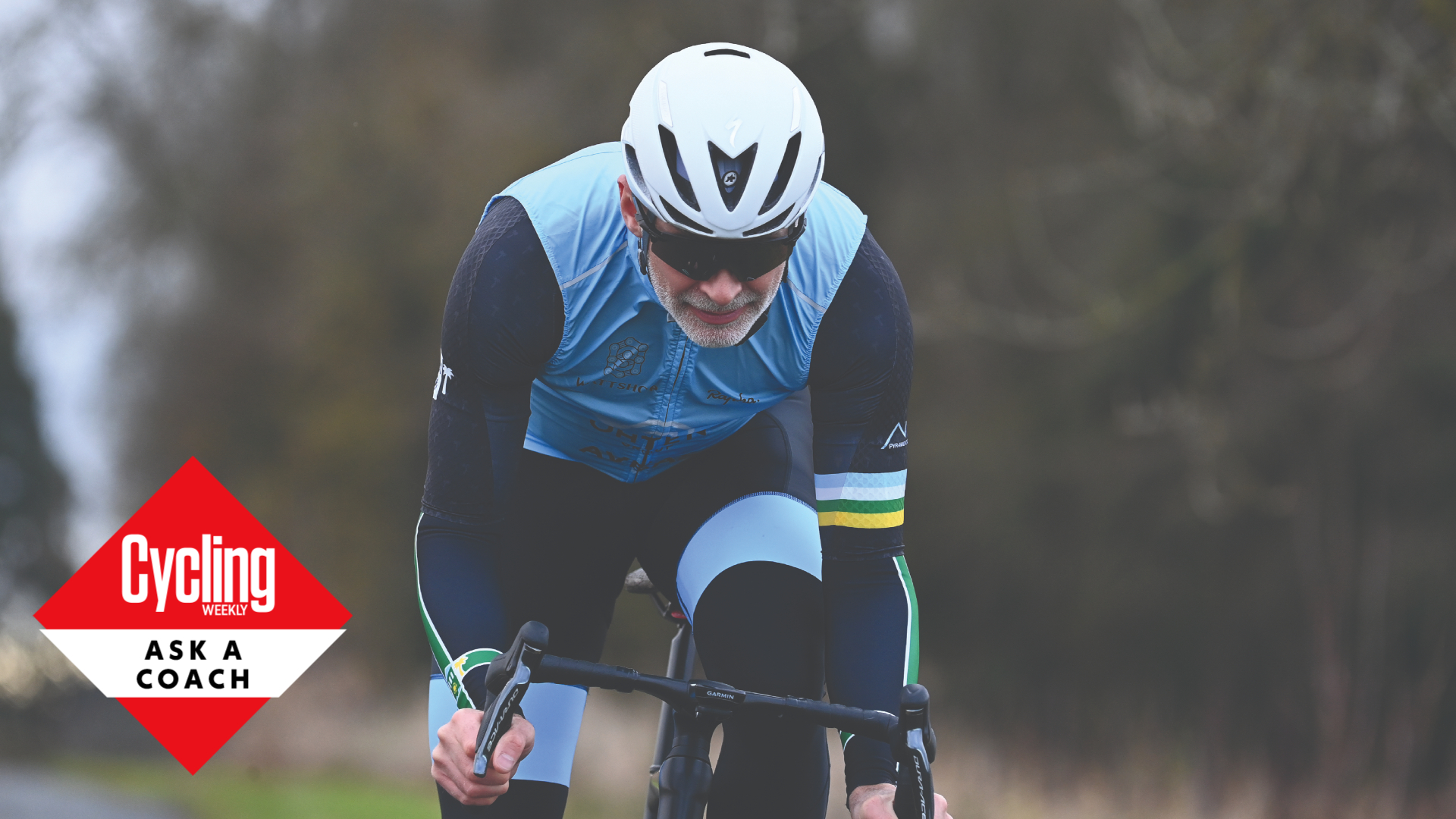 Ask a coach: 'I’m over 40, what is a good VO2 max for my age?'
Ask a coach: 'I’m over 40, what is a good VO2 max for my age?'VO2 max measures how much oxygen your body can utilise in a minute - but how does yours compare to the average, and does it matter?
By James Spragg
-
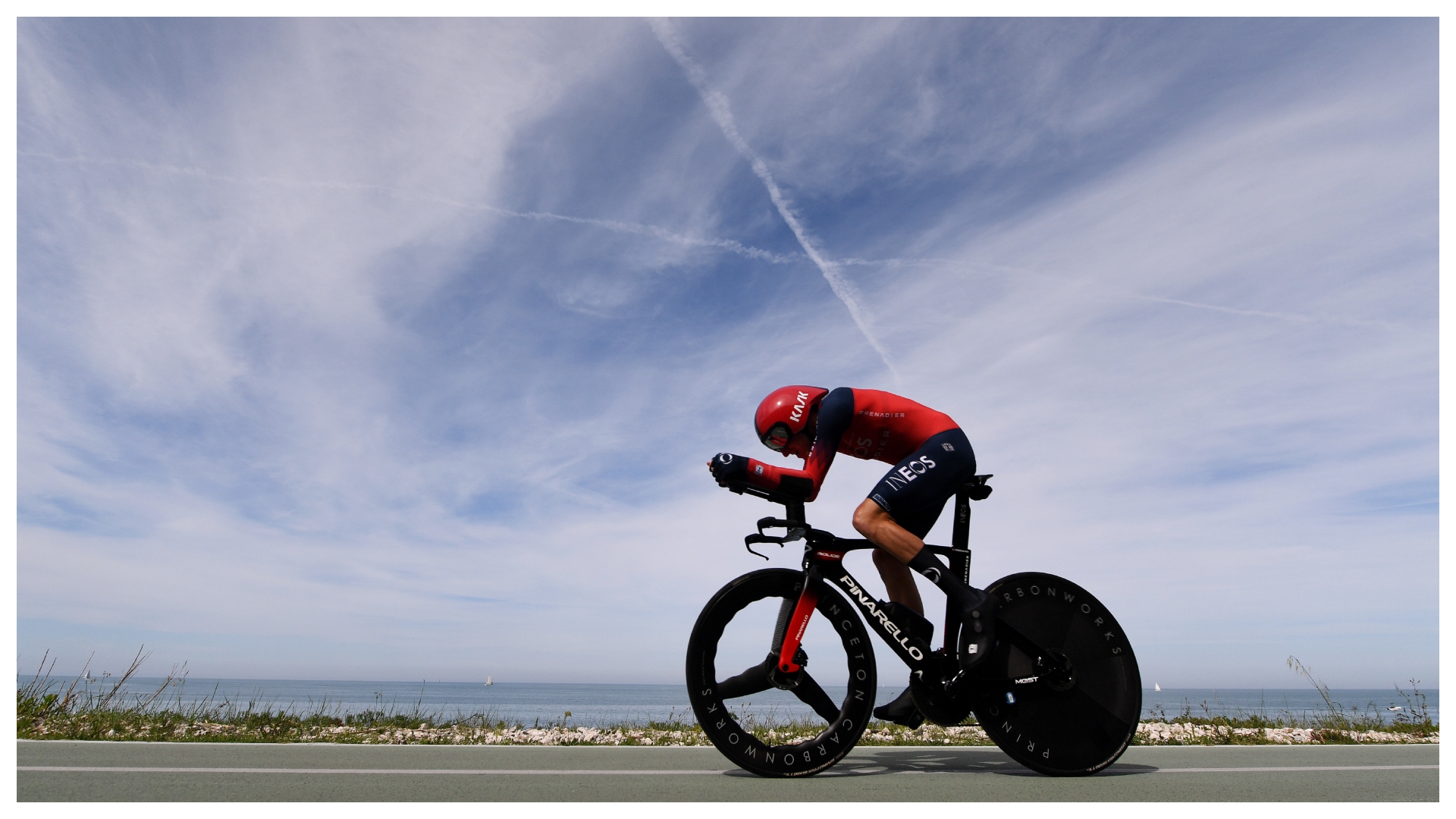 Performance fuelling for time-trials.
Performance fuelling for time-trials.How INEOS Grenadiers use Science in Sport to fuel a Grand Tour stage when every second counts
By Sponsored
-
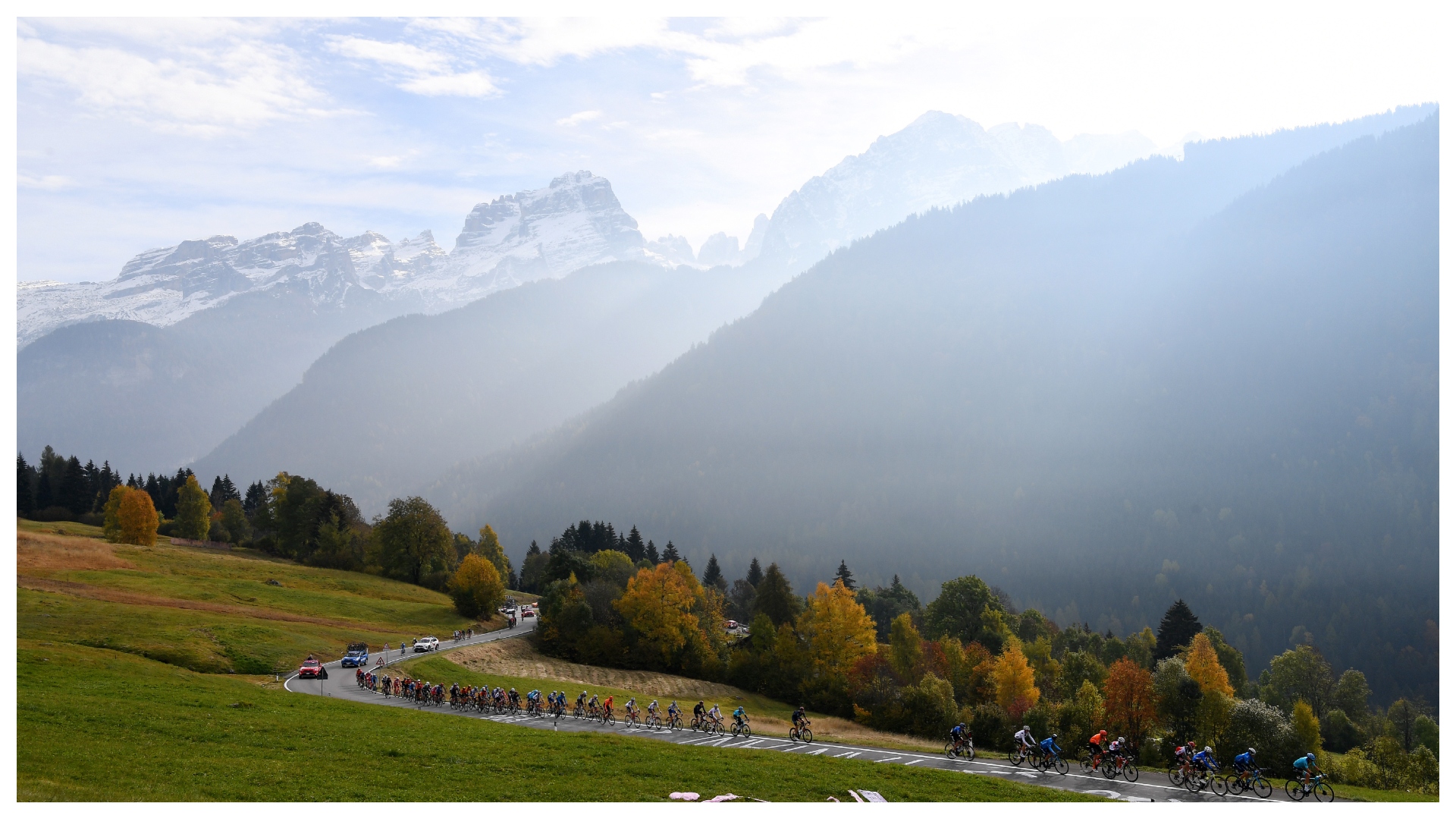 Fuelling for the mountains
Fuelling for the mountainsHow INEOS Grenadiers use Science in Sport to fuel a Grand Tour
By Sponsored
-
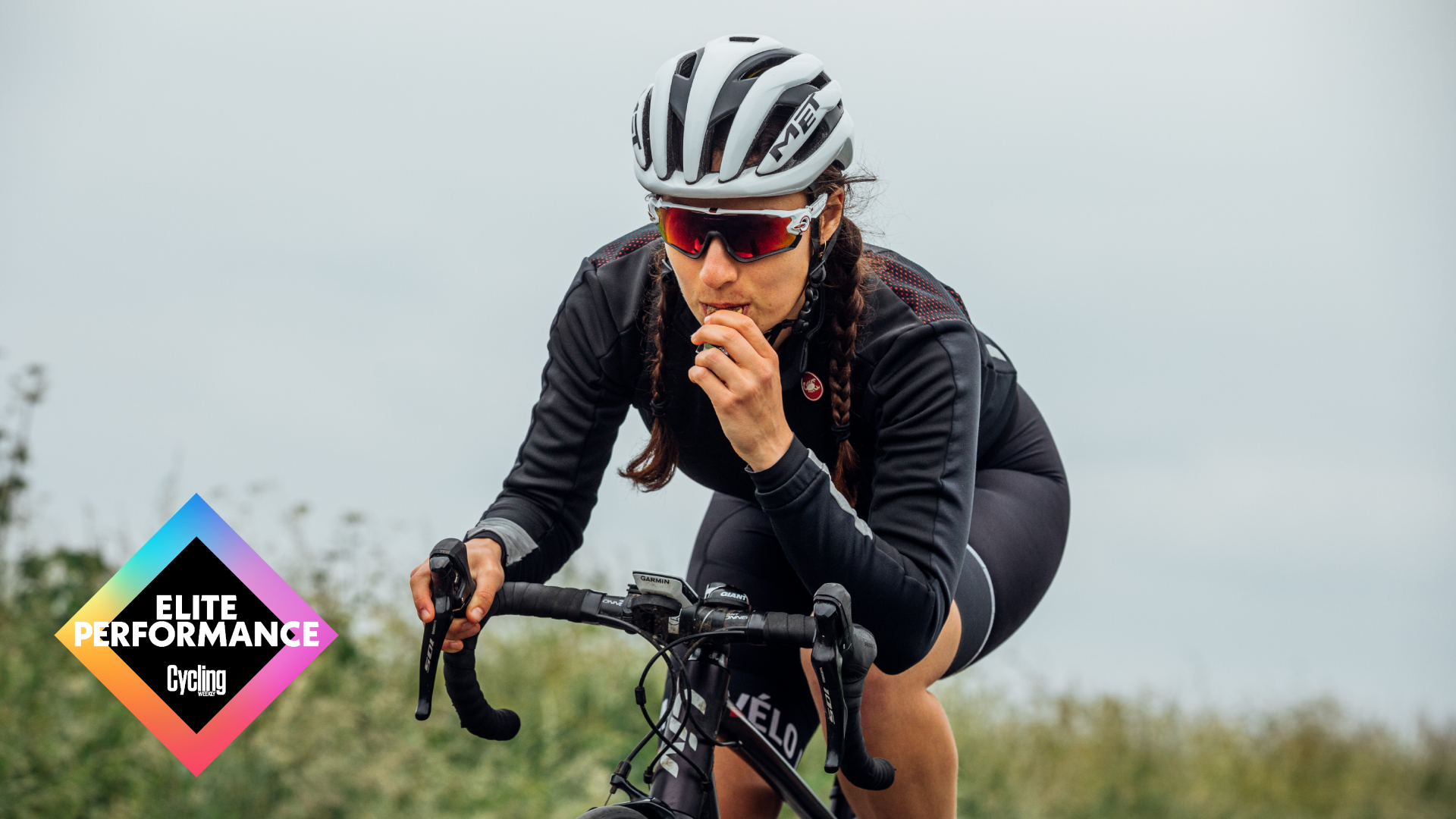 Should cyclists care more about chemicals in sports nutrition?
Should cyclists care more about chemicals in sports nutrition?With so much information now available about sports nutrition, how can athletes make sense of what’s best for them? We chat with two brands and a registered dietitian to get to the bottom of what formulas make sense and why
By Kristin Jenny
-
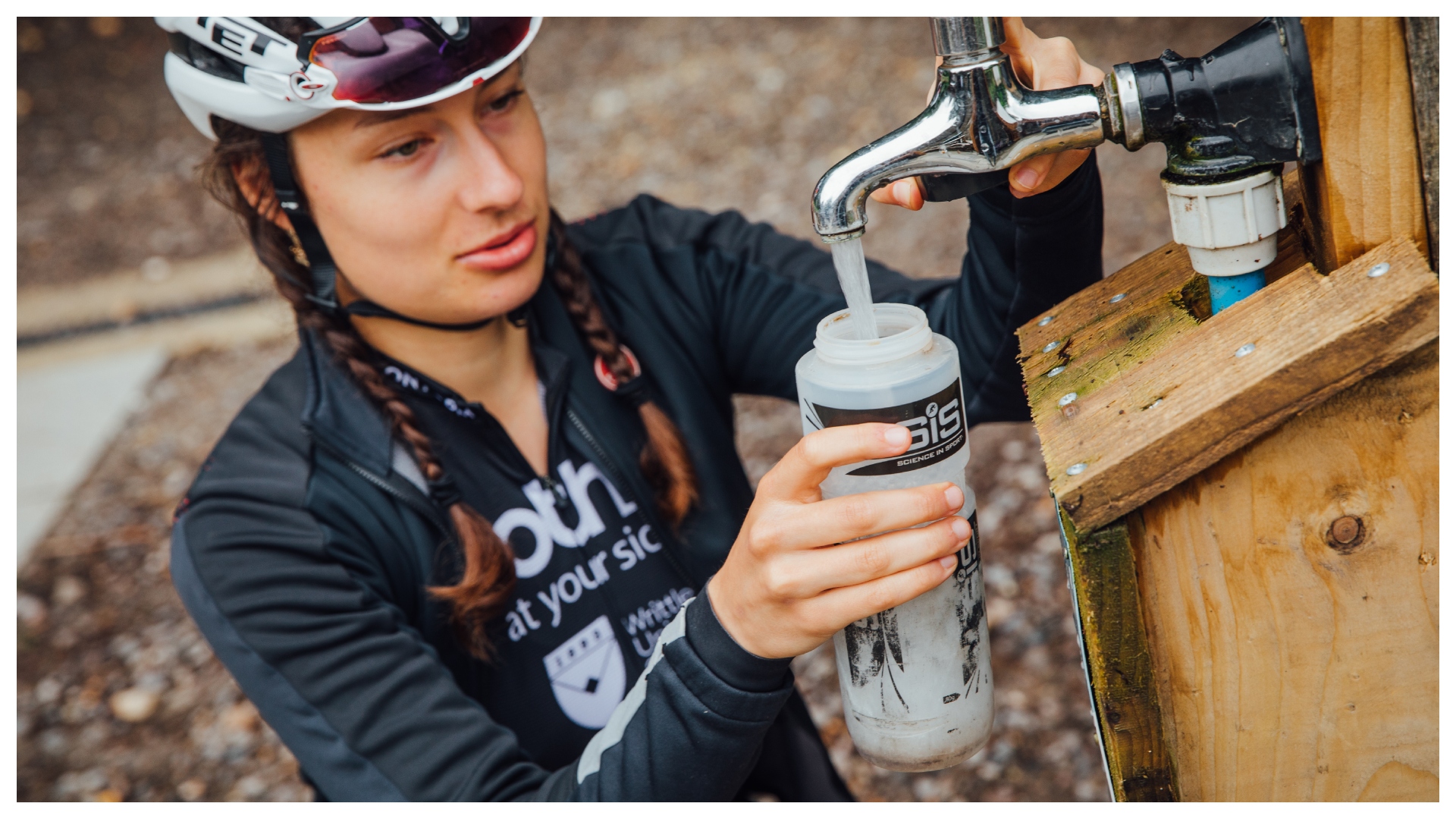 Are these six common sports nutrition rules fact or fiction?
Are these six common sports nutrition rules fact or fiction?By Adam Becket
-
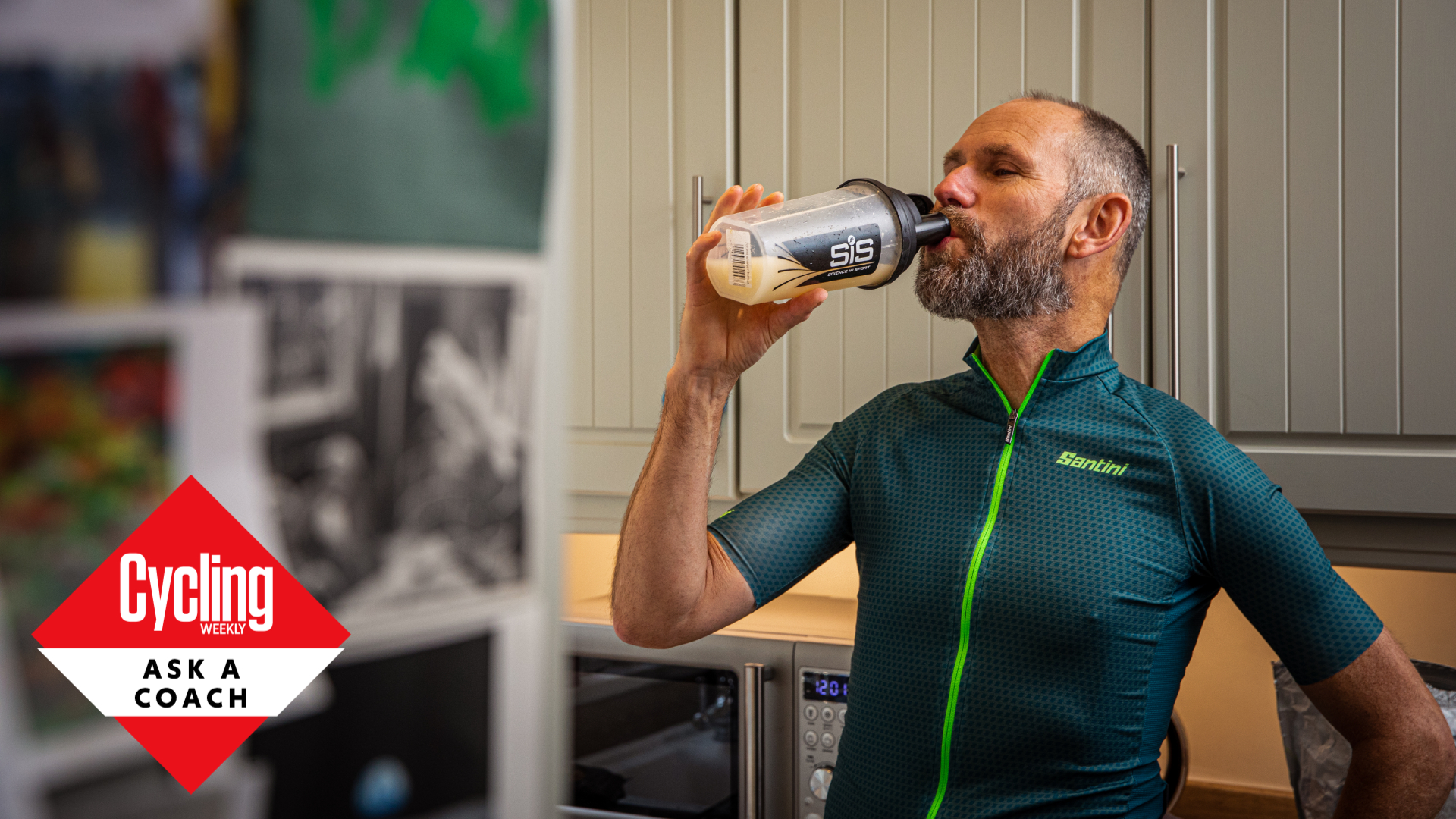 Ask a coach: 'Do I need carbs as well as protein in my recovery shake?'
Ask a coach: 'Do I need carbs as well as protein in my recovery shake?'What is the optimal post-ride macro-nutrient blend?
By James Spragg
